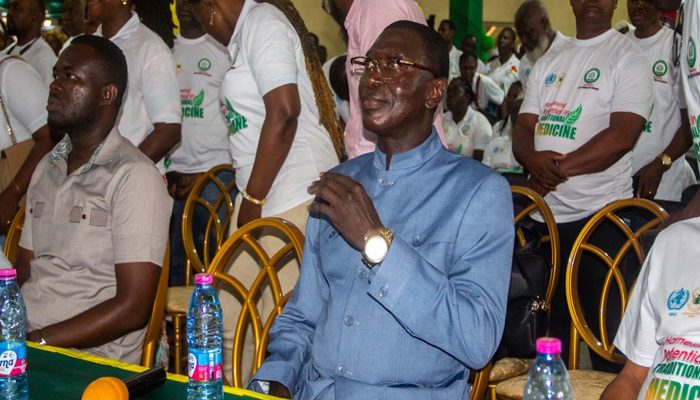The Ghana Federation of Traditional Medicine Practitioners Associations (GHAFTRAM) is aiming to transform Ghana’s herbal medicine industry into a major economic force, projecting that the sector could generate $5 billion in annual revenue from exports of herbal medicines and medicinal plants.
This ambitious goal aligns with global trends in the herbal medicinal market, which is expected to reach $177.65 billion by 2029.
Traditional Medicine Development Fund
To achieve this, GHAFTRAM plans to establish a Traditional Medicine Development and Research Fund to support the research, development, and commercialization of traditional herbal medicines.
This fund will seek both internal and external financing to expand the processing and distribution capabilities of the sector.
Ghana’s rich medicinal plant species
Ghana’s rich and diverse forests, which are home to hundreds of medicinal plant species, have become crucial to the country’s growing non-traditional exports, especially to markets in China and the European Union.
The Botanical Plant Exporters Association of Ghana (BOPA) represents the interests of these exports, contributing significantly to the country’s economy.
A full 40 percent of the drugs behind the pharmacist’s counter in the Western world are derived from plants that people have used for centuries, including the top 20 best-selling prescription drugs in the United States today.
In Australia, Canada, and the United Kingdom, annual expenditure on traditional medicine is estimated to be $80million, $1billion, and $2.3billion, respectively.
Annual retail sales of herbal dietary supplements in the U.S. totaled $15.551 billion in 2023, according to the American Botanical Council (ABC)’s 2023 Herb Market Report
Green Gold Agenda
Prof. Samuel Ato Duncan, President of GHAFTRAM, expressed confidence that the federation’s Green Gold Agenda has the potential to generate over $5 billion annually, exceeding revenue from cocoa exports.
The Green Gold Agenda aims to develop traditional medicine to international standards through research and promotion in the global market, positioning it as a key commodity for Ghana.
“The herbal medicine industry is one of the fastest-growing globally, driven by consumer preference for natural products and the perception that they are more effective with fewer side effects compared to synthetic pharmaceuticals,” Prof Duncan noted at the recent celebration of the 22nd African Traditional Medicine Day.
Call for govt support
Despite its potential, Prof. Duncan who is also the President-General of COA Research and Manufacturing Limited lamented the lack of attention the traditional medicine sector has received from successive governments.
He emphasized the need for traditional medicine to be integrated into the National Health Insurance Scheme (NHIS), highlighting that both conventional and traditional medicine share the same goal of healing.
Additionally, GHAFTRAM is working to establish a standardized administrative structure to ensure all traditional medicine practitioners in Ghana are registered and adhere to strict standards.
The federation also plans to form a research committee with representatives from reputable research institutions to further advance the industry.
Prof. Duncan urged stakeholders to join hands in promoting traditional medicine, calling for greater attention and support to unlock its full potential.
- JM, touch not the annointed - 3 May 2025
- Online blackmail and sextortion soaring –CSA - 2 May 2025
- No amnesty for people who resigned from NPP – Kodua - 2 May 2025




